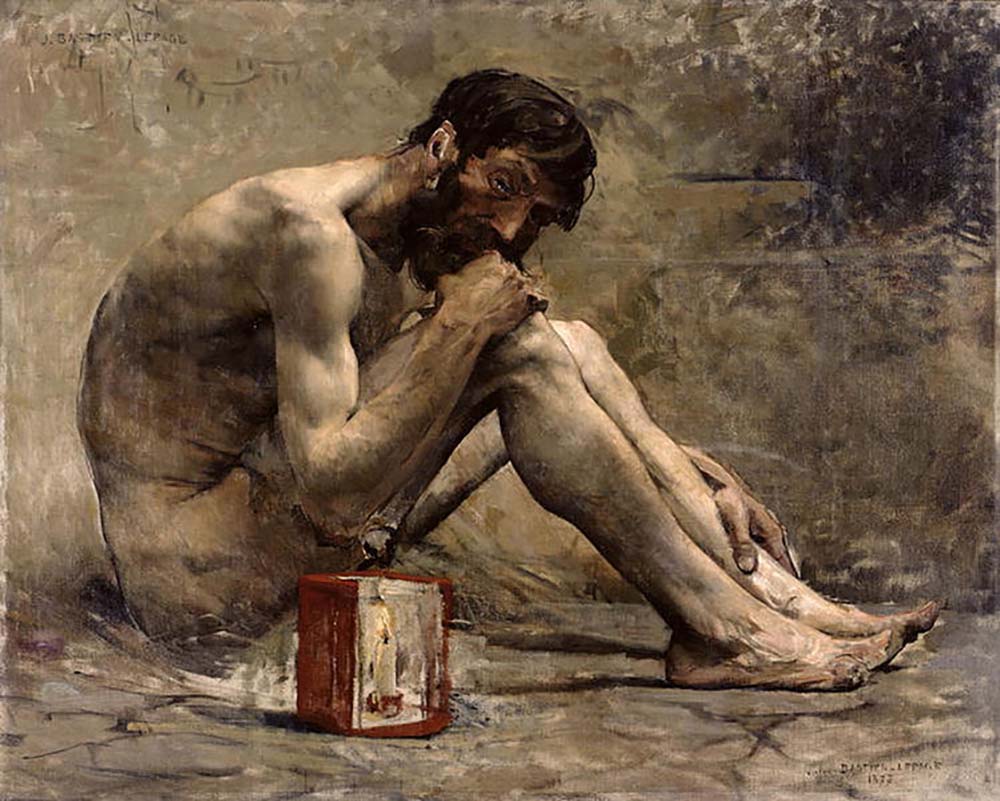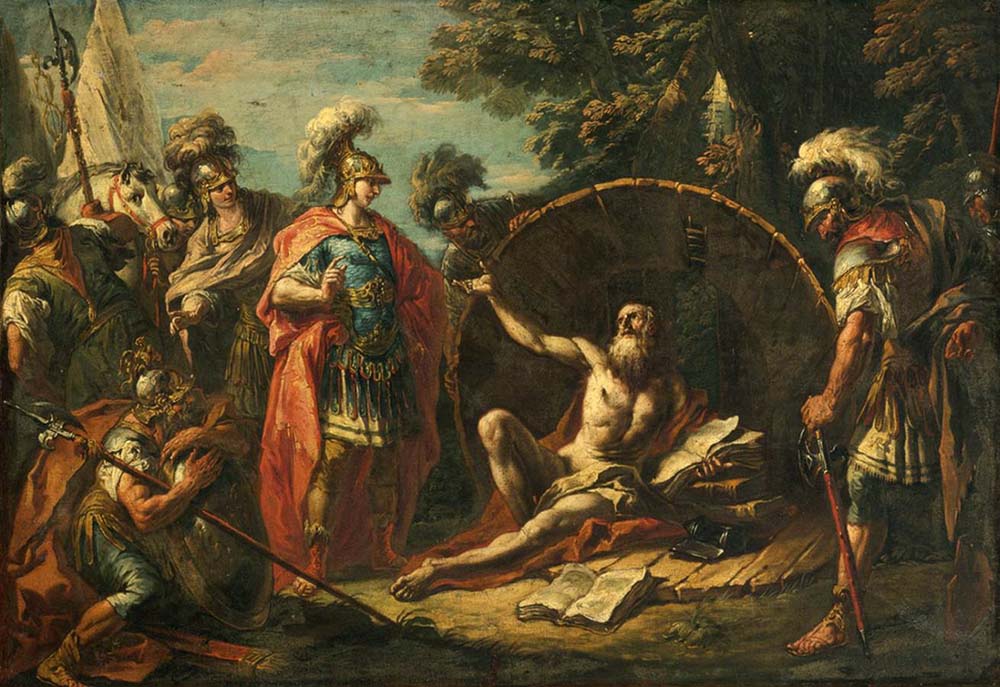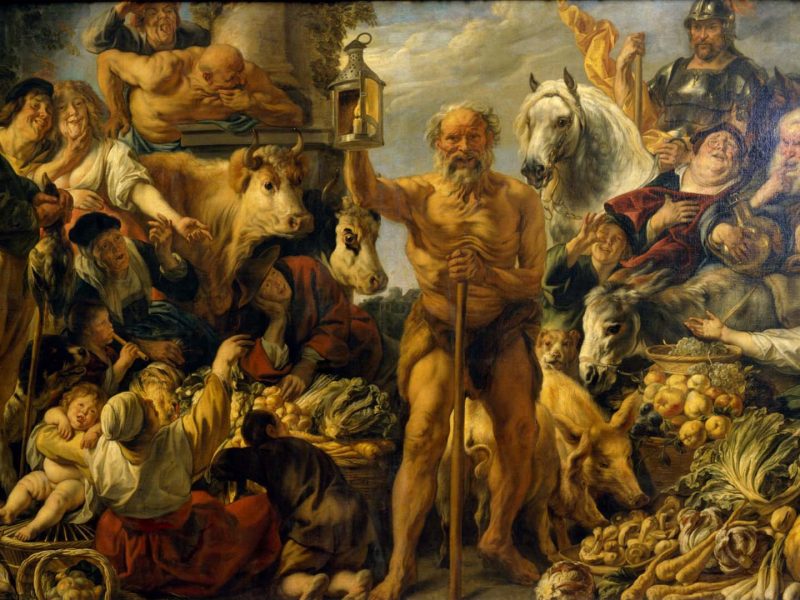An ancient philosopher, Diogenes lived between 412-323 BC. It is known that Diogenes was born in Sinop and he was regarded as a pioneer of the Cynic Philosophy. According to this philosophy, knowledge is something that must be experienced in concrete life rather than in abstraction. A human should endure by himself and be self-sufficient. When Diogenes’ father was a child, he lived in Sinop, working as a jeweler. However, when his father began to earn money, the family was exiled to Athens. They lived in misery there, but in Athens met Antisthenes, who is the founder of Cynicism. Diogenes learned his philosophical knowledge from him.
In his lifetime, Diogenes was left alone, alienated and condemned to live without money. Most of the time he had walked around on the streets with dirty clothes, and at nights he slept at the base of a sculpture. In the old days, there was a cup, a stick, and a barrel used by dervishes and by the homeless. People then begun to talk about Diogenes referring those objects. At that time, he had been living in the barrel. He had been underestimating everyone thanks to his extreme pride. On cold days, he walked on snow and embraced frosted sculptures. Plato called him Crazy Socrates, because Socrates was the founder of the Cynic philosophy.
Thanks to his superior intelligence and rhetoric, Diogenes became a philosopher who has succeeded over time to influence everyone. Antisthenes, who took the lead after Socrates’ death, established the Cynic Philosophy which teaches that virtue exists in a person who dominates oneself. According to this philosophy, people should not depend on other people. It argues that if a person wants to be virtuous, one should become self-sufficient and be in peace with nature. This philosophy has adopted the idea that people should put away their ambitions, desires, and unnecessary needs beside some basic human needs. Because of that, marriage is taboo, one cannot own property and be wealthy, and one should not show noble behavior; even children were deemed unnecessary. Individuals should also always oppose institutions. The best way of life was again to simply be one with nature.

Diogenes by Jules Bastien Lepage
According to legendary information from the past, when Diogenes was going to Aegina City, he was abducted by pirates then sold to a man named Xeniades. After this, Diogenes came to Corinth, where he taught the two sons of this man. Rumor has it that after this period, the rest of his life was better. He was no longer homeless in Corinth, and he walked about like a virtuous scholar. Alexander the Great, who came to Corinth, and visited Diogenes, because Alexander the Great is a person curious about philosophy and one who valued philosophers. However, Diogenes had said to Alexander the Great: “Stand out of my sunlight.” Emperor Alexander the Great then responded, “I would love to be Diogenes.”
Unfortunately, none of Diogenes’ written work has survived. However, his effect remains potent antiquity to now. His name is often heard in the Kinetic Philosophy School and study of him always remains on the agenda. In particular, his lifestyle is considered an effective method for later thinkers, a lifestyle named “Kelbiyyun.” This expression means to disdain life, humiliate people, to live far from all kinds of shows, and to resist the morality of the society. After Diogenes, this understanding was supported as the idea of modest living, which is the essence of mysticism.

Alexander the Great and Diogenes
Cynical Philosophy is an understanding that does not try to interpret consciousness, wisdom, mind, and virtue. In Diogenes’ opinion, consciousness, mind, virtue, and wisdom are interconnected. These phenomena bring with them the concept of happiness. In other words, how much the individual uses his mind, consciousness, virtuous behavior, and wisdom determines how close he can come to realizing the concept of happiness. In Diogenes’ opinion, wisdom is regarded as an asset that enables our soul to mature. Moving away from all passion and unnecessary desires make the spirit mature. Diogenes, who promulgated his thoughts with the fact that thrift and avoidance of passions and aesthetics are also unnecessary knew that if there are beauty and richness, virtue does not exist there. Therefore, if people grow to maturity and commit to the goal of living wisely, they can separate themselves from mundane pleasures like baubles and wealth.
We do not know the exact details surrounding Diogenes’ death. Some information has come down to us, such as the idea that he ate raw octopus or he was bitten by a rabid dog. Still, his presence in Turkey is considered important. In 2006, a sculpture was erected in Sinop to keep his memory alive. It depicts him with a lantern in hand and a dog alongside him. The sculpture is about 6 meters tall and was designed by a team of 25 people from the Fine Arts Department of Ondokuz Mayıs University.

